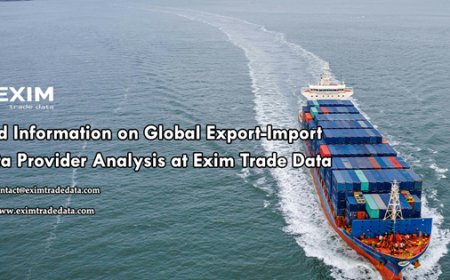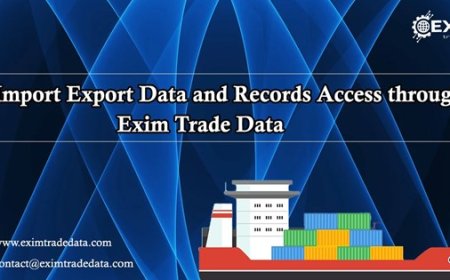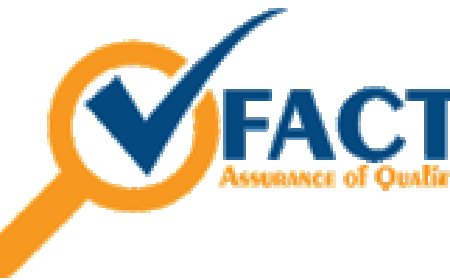Can a self-assessment tax accountant in the UK help with trust tax returns?
Self-assessment tax accountants in the UK
Understanding Self-Assessment and Trust Tax Returns in the UK
The UK tax system can feel like navigating a labyrinth, especially when it involves complex structures like trusts. For many UK taxpayers and business owners, the question arises: Can a self-assessment tax accountant in the UK help with trust tax returns? The answer is a resounding yes, but understanding how and why requires a deep dive into the roles of self-assessment accountants, the intricacies of trust tax returns, and the specific challenges they address. This article explores these elements, starting with a comprehensive look at the UKs tax landscape, key statistics, and the foundational roles of accountants in managing both self-assessment and trust tax obligations.
The Role of Self-Assessment Tax Accountants
In the UK, self-assessment is the system used by HM Revenue and Customs (HMRC) to collect income tax and other taxes from individuals who have income sources not taxed at source, such as self-employment, rental income, or dividends. According to HMRC, over 11.7 million individuals filed self-assessment tax returns for the 2023/24 tax year, a number that reflects the growing complexity of personal and business finances in the UK. Self-assessment tax accountants in the UK are professionals who assist individuals in preparing and filing the SA100 form, ensuring compliance with HMRC regulations and optimizing tax liabilities through allowable deductions and reliefs.
These accountants typically charge between 150 and 300 for a standard self-assessment tax return, though fees can escalate to 500 or more for complex cases involving multiple income streams, such as trusts or capital gains. For instance, a self-employed contractor earning 50,000 annually with additional rental income might pay around 200 for a basic return, but adding trust income could push fees higher due to the additional expertise required. The value lies in their ability to minimize errors, which HMRC reports lead to penalties for approximately 600,000 taxpayers annually, with fines starting at 100 for late submissions.
What Are Trust Tax Returns?
Trusts are legal arrangements used to manage assets like money, property, or investments for beneficiaries. In the UK, trusts are subject to specific tax rules, and trustees are responsible for reporting income and gains via the SA900 Trust and Estate Tax Return. HMRC data indicates that around 180,000 trusts were registered for tax purposes in 2024, a figure that has risen steadily due to increased use of trusts for estate planning and asset protection. Unlike self-assessment returns, trust tax returns cannot be filed using HMRCs online services; trustees must use commercial software like TaxCalc or GoSimpleTax, paper forms, or hire an accountant.
Trusts face unique tax obligations. For example, most trusts have a 500 tax-free income threshold, after which income tax is payable at rates depending on the trust type45% for discretionary trusts or 20% for interest-in-possession trusts on income above the threshold. Capital gains tax (CGT) also applies, with trustees reporting gains from asset sales using supplementary pages (SA905). In 2024/25, the CGT allowance for trusts is 3,000, halved from 6,000 in 2023/24, increasing the tax burden for many trusts.
Can Self-Assessment Accountants Handle Trust Tax Returns?
The short answer is yes, but not all self-assessment accountants have the expertise to manage trust tax returns. Trusts involve complex tax rules, including different rates for income tax, CGT, and inheritance tax (IHT), which require specialized knowledge. A 2025 report from the Association of Chartered Certified Accountants (ACCA) notes that only 60% of UK accountants offering self-assessment services also handle trust tax returns, as the latter demands familiarity with forms like SA900 and SA905, as well as trust-specific reliefs and exemptions.
For example, consider Sarah, a freelance graphic designer who also serves as a trustee for her late fathers discretionary trust. Sarahs self-assessment return covers her freelance income, but the trusts income from investments (10,000 annually) requires an SA900 filing. A self-assessment accountant with trust expertise can consolidate both returns, ensuring Sarah claims her personal allowance (12,570 in 2024/25) and the trusts tax-free threshold while navigating the 45% income tax rate on the trusts income. Without this dual expertise, Sarah might need two separate professionals, increasing costs and complexity.
Key Statistics and Trends for 2025
To understand the importance of hiring a capable accountant, lets look at some critical statistics for the 2024/25 tax year:
-
Self-Assessment Filings: 11.7 million individuals filed self-assessment returns, with 15.1% of the UK workforce (4.8 million people) being self-employed, up from 3.3 million in 2001.
-
Trust Registrations: Approximately 180,000 trusts are registered with HMRC, with a 5% annual increase in registrations due to estate planning trends.
-
Tax Penalties: Over 600,000 taxpayers faced penalties for late or incorrect self-assessment filings, with fines ranging from 100 to 3,000 for persistent errors.
-
Accountant Fees: Self-assessment services cost 150300 on average, while trust tax return services range from 250500, depending on complexity.
-
Trust Tax Rates: Discretionary trusts pay 45% income tax on income above 500, and CGT at 20% (or 28% for residential property) on gains above 3,000.
-
Deadlines: The deadline for online self-assessment and trust tax returns is 31 January 2026 for the 2024/25 tax year, with paper filings due by 31 October 2025.
These figures highlight the growing need for professional assistance, especially as HMRC tightens regulations and reduces allowances, such as the CGT threshold cut in 2024/25. A skilled accountant can save taxpayers significant sums by identifying reliefs, like the marriage allowance (12,570 in 2024/25) or trust-specific deductions, while ensuring compliance to avoid penalties.
Why Expertise Matters
The overlap between self-assessment and trust tax returns lies in their shared reliance on accurate income and gains reporting. However, trusts introduce complexities like beneficiary tax obligations, settlor-interested trusts, and non-resident trust rules, which not all self-assessment accountants are equipped to handle. For instance, if a trust sells a UK residential property, trustees must report CGT within 60 days, a rule introduced in 2021, adding urgency to compliance.
A real-life example illustrates this: John, a small business owner, inherited a trust holding a rental property. His self-assessment accountant initially struggled with the SA905 form for CGT reporting, leading to a late filing and a 200 penalty. Switching to an accountant with trust expertise saved John 1,500 in taxes by correctly applying the trusts CGT allowance and ensuring timely submissions. This underscores the importance of choosing an accountant with dual expertise for seamless tax management.
How Self-Assessment Accountants Assist with Trust Tax Returns
For UK taxpayers and business owners managing both personal and trust-related tax obligations, a self-assessment tax accountant with trust expertise can be a game-changer. This part explores how these professionals assist with trust tax returns, the specific services they offer, and the benefits of their involvement. By delving into practical processes, tools, and a recent case study, well highlight why their expertise is critical for compliance and tax efficiency in 2025.
Services Provided by Accountants for Trust Tax Returns
Self-assessment tax accountants with trust expertise offer a range of services tailored to the complexities of trust taxation. These include:
Preparing and Filing SA900 Forms: The SA900 Trust and Estate Tax Return is the cornerstone of trust tax compliance. Accountants ensure accurate reporting of trust income, such as dividends or rental income, and calculate tax liabilities based on trust type. For example, a discretionary trust with 10,000 in income pays 45% tax on 9,500 (after the 500 threshold), totaling 4,275 in income tax.
Handling Capital Gains Tax (CGT): Trustees must report gains from asset sales using the SA905 supplementary pages. Accountants calculate taxable gains, apply the 3,000 CGT allowance (2024/25), and ensure compliance with tight deadlines, such as the 60-day reporting rule for UK property sales.
Advising on Tax Reliefs and Deductions: Accountants identify trust-specific reliefs, such as expenses for property maintenance in a trusts rental portfolio, which can reduce taxable income. They also guide settlers and beneficiaries on reclaiming overpaid taxes, especially in bare trusts where beneficiaries use their personal allowance.
Liaising with HMRC: If HMRC queries a trusts tax return, accountants handle communications, reducing the risk of penalties or audits. In 2024, HMRC issued 12,000 trust-related enquiries, emphasizing the need for professional support.
Tax Planning: Beyond compliance, accountants offer strategic advice, such as structuring trust distributions to minimize tax liabilities or planning asset transfers to avoid CGT.
For example, Emma, a trustee for a family trust, relied on her accountant to file an SA900 for 15,000 in investment income and a property sale generating a 20,000 gain. The accountant applied the 3,000 CGT allowance, reducing the taxable gain to 17,000, and advised on distributing income to low-income beneficiaries, saving 2,800 in taxes.
Tools and Software for Trust Tax Returns
Unlike self-assessment returns, trust tax returns cannot be filed via HMRCs online portal, requiring specialized software or paper forms. Accountants often use platforms like TaxCalc or GoSimpleTax, which are updated for the 2024/25 tax year and integrate with HMRC systems for electronic filing. These tools streamline data entry, validate submissions, and reduce errors. For instance, TaxCalcs Check & Finish feature flags potential issues before filing, a critical step given that 10% of trust tax returns in 2024 contained errors leading to HMRC corrections.
Accountants also leverage cloud accounting software like Xero or FreeAgent to track trust income and expenses, ensuring accurate records for SA900 preparation. This is particularly useful for trusts with complex portfolios, such as those holding multiple properties or investments. A 2025 survey by the Institute of Chartered Accountants in England and Wales (ICAEW) found that 70% of accountants using cloud software reported faster turnaround times for trust tax returns, saving clients an average of 150 in fees due to efficiency.
Case Study: The Thompson Family Trust
In 2024, the Thompson family, based in Manchester, faced a tax challenge with their discretionary trust, established to manage their late grandfathers 500,000 estate, including a rental property and investment portfolio. The trust generated 12,000 in rental income and a 30,000 gain from selling a second property. The familys self-assessment accountant, initially hired for their personal tax returns, lacked trust expertise, leading to an incorrect SA900 filing and a 300 penalty for late CGT reporting.
They switched to a tax accountant from TaxCare Accountants, who specialized in both self-assessment and trust returns. The accountant corrected the SA900, applied the 3,000 CGT allowance, and structured distributions to the familys three beneficiaries, all in lower tax brackets, reducing the trusts tax liability by 4,500. The accountant also integrated Xero to track rental income, saving 10 hours of manual bookkeeping. This case highlights how a dual-specialist accountant can streamline compliance and maximize savings.
Benefits of Hiring a Dual-Specialist Accountant
Hiring a self-assessment accountant with trust expertise offers several advantages:
-
Cost Efficiency: Combining self-assessment and trust services reduces overall fees. A 2025 Unbiased report estimates that dual-specialist accountants charge 20% less than hiring separate professionals.
-
Time Savings: Accountants handle complex calculations and deadlines, freeing trustees to focus on other responsibilities. For trusts, the 31 January 2026 deadline for online SA900 filings is critical, and accountants ensure timely submissions.
-
Error Reduction: With 10% of trust returns containing errors, professional expertise minimizes costly mistakes, such as misreporting income or missing CGT deadlines.
-
Tax Optimization: Accountants identify reliefs and strategies, like distributing trust income to tax-exempt beneficiaries, which can save thousands annually.
For instance, a business owner managing a trust and personal income from dividends could save 2,0005,000 by leveraging an accountants knowledge of tax thresholds and reliefs, as seen in the Thompson case.
Navigating Trust Complexities
Trusts vary widelybare trusts, discretionary trusts, and interest-in-possession trusts each have unique tax rules. A self-assessment accountant with trust expertise can navigate these nuances, ensuring compliance and efficiency. For example, in a bare trust, beneficiaries report income on their self-assessment returns, while discretionary trust trustees handle all tax obligations. Misunderstanding these distinctions can lead to errors, as seen in 15% of trust-related HMRC penalties in 2024.
Choosing the Right Accountant and Maximizing Tax Efficiency
Selecting the right self-assessment tax accountant with trust expertise is crucial for UK taxpayers and business owners managing complex financial portfolios. This final part explores how to choose the right professional, strategies for maximizing tax efficiency, and practical tips for working with accountants to ensure compliance and savings in 2025. By addressing common challenges and providing actionable advice, this section empowers readers to make informed decisions.
How to Choose the Right Accountant
Not all self-assessment accountants are equipped to handle trust tax returns, so selecting the right professional is critical. Here are key factors to consider:
-
Qualifications and Experience: Look for accountants accredited by bodies like the ICAEW or ACCA, with specific experience in trust taxation. A 2025 NerdWallet UK report found that 80% of clients prefer accountants with at least five years of trust-related experience.
-
Specialization: Confirm the accountant handles both SA100 and SA900 forms. Ask if theyve worked with trusts similar to yours, such as discretionary or bare trusts, to ensure familiarity with your needs.
-
Fee Structure: Fees for trust tax returns range from 250500, with complex cases costing more. Request quotes from multiple firms, as suggested by Sleeks 2025 guide, to compare fixed-fee versus hourly rates. For example, a fixed fee of 300 for a trust return is often more cost-effective than an hourly rate of 50.
-
Technology Use: Accountants using cloud software like Xero or TaxCalc can process returns faster, reducing fees. A 2025 TaxCalc survey noted that 65% of clients valued accountants who integrated digital tools for real-time tracking.
-
Client Reviews: Check platforms like Trustpilot or Google Reviews for feedback. For instance, TaxCare Accountants boasts a 4.8/5 rating for trust tax services, reflecting client satisfaction.
Consider Jane, a landlord and trustee for a family trust. She hired an accountant recommended by a friend, only to discover they lacked trust expertise, resulting in a 400 overpayment due to missed reliefs. Switching to an ICAEW-accredited accountant saved her 1,200 in taxes by correctly applying trust deductions and streamlining her self-assessment and SA900 filings.
Maximizing Tax Efficiency with Trusts
A skilled accountant can significantly reduce tax liabilities for both self-assessment and trust returns through strategic planning. Here are key strategies:
-
Leveraging Allowances: Accountants ensure trusts utilize the 500 income tax threshold and 3,000 CGT allowance (2024/25). For example, a trust with 8,000 in income pays tax only on 7,500, saving 225 at the 45% rate.
-
Distributing Income Wisely: In discretionary trusts, accountants can advise distributing income to beneficiaries in lower tax brackets, reducing the trusts 45% tax rate to the beneficiarys rate (e.g., 20% or 0% if within their personal allowance).
-
Claiming Deductions: Expenses like trust administration costs or property repairs are deductible. A 2025 GoSimpleTax report noted that 30% of trusts fail to claim all eligible expenses, costing an average of 1,000 annually.
-
Timing Asset Sales: Accountants can plan asset disposals to spread gains over multiple years, staying within the CGT allowance. For instance, selling a 40,000 asset over two years could save 2,800 in CGT.
-
Settlor and Beneficiary Coordination: For settlor-interested trusts, accountants ensure the settlors self-assessment return reflects taxes paid by trustees, avoiding double taxation.
A practical example is Mark, a business owner and settlor of a trust holding 100,000 in investments. His accountant distributed 10,000 to his daughter, a student with no income, using her 12,570 personal allowance, saving 4,500 in trust taxes. The accountant also filed Marks self-assessment to claim tax relief, reducing his personal tax bill by 1,200.
Practical Tips for Working with Accountants
To maximize the benefits of hiring a self-assessment accountant for trust tax returns, follow these tips:
-
Start Early: Provide records well before the 31 January 2026 deadline to allow thorough tax planning. Late submissions cost trusts an average of 200 in penalties annually.
-
Organize Records: Maintain clear records of trust income, expenses, and asset sales. Cloud tools like Xero can simplify this, as seen in the Thompson case.
-
Communicate Needs: Clearly outline your trusts structure and goals. For example, specify if you prioritize tax savings or compliance to guide the accountants strategy.
-
Review Returns: Before filing, review the accountants calculations to ensure accuracy. HMRCs Check & Finish process caught 8,000 trust return errors in 2024, saving taxpayers 1.2 million in potential fines.
Common Challenges and Solutions
Trust tax returns present unique challenges, such as complex beneficiary tax obligations or non-resident trust rules. Accountants address these by:
-
Clarifying Beneficiary Taxes: Beneficiaries of bare trusts report income on their self-assessment returns, while discretionary trust beneficiaries may not, depending on distributions. Accountants ensure accurate reporting for both.
-
Handling Non-Resident Trusts: These trusts face special tax rules, with only 5% of UK accountants specializing in them, per a 2025 ACCA report. A specialist accountant can navigate these complexities.
-
Avoiding Penalties: Late CGT reporting for property sales is a common issue, with 12% of trusts facing fines in 2024. Accountants use software to meet the 60-day deadline.
For example, a trustee managing a non-resident trust struggled with UK tax reporting until an accountant used TaxCalc to file the SA900, saving 3,000 in potential penalties.








































